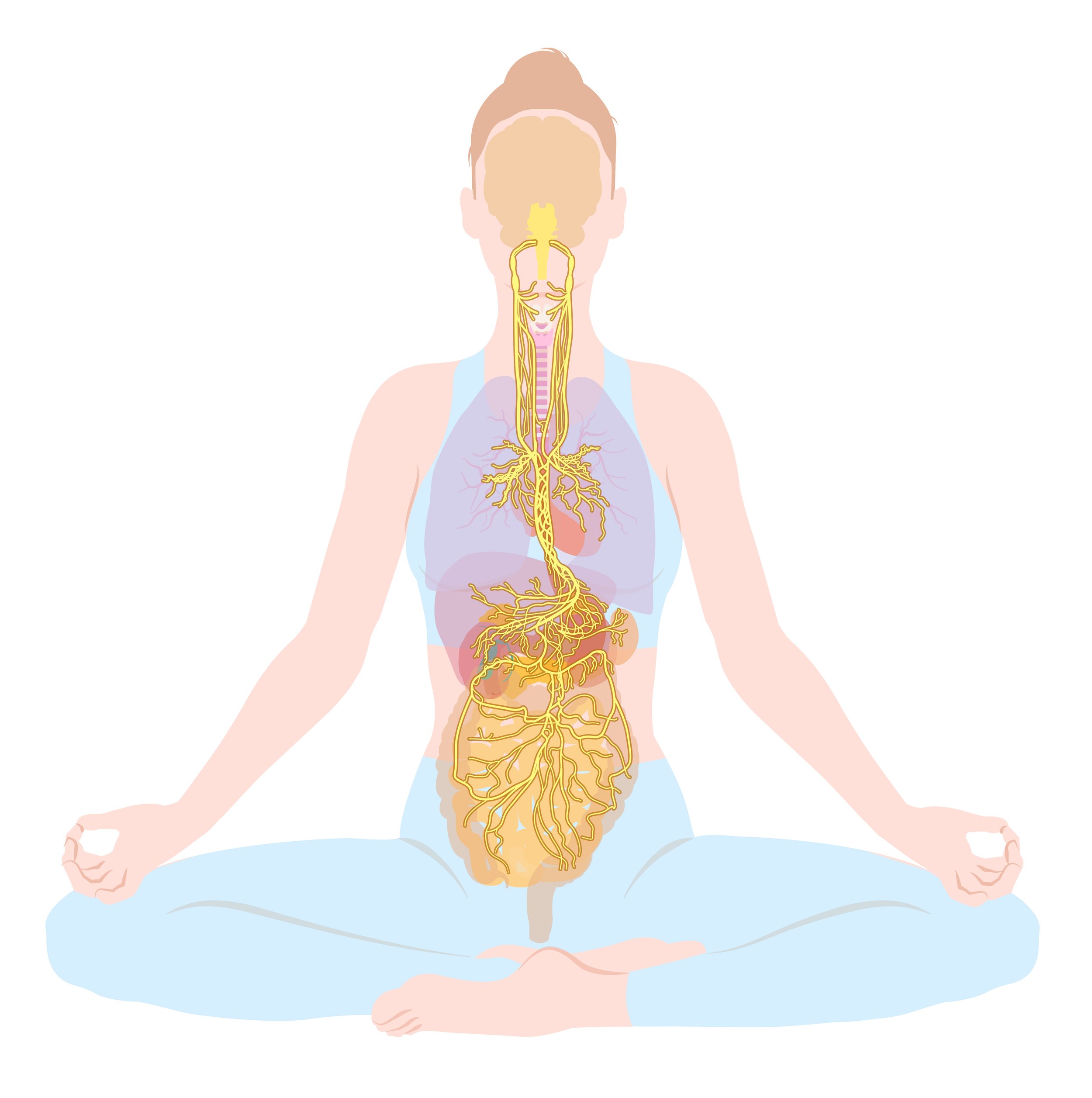
THE VAGUS NERVE EXPLAINED
March 16, 2023
Have you heard of the vagus nerve? The vagus nerve is perhaps one of the most significant yet underappreciated contributors to health and wellbeing. You may not have even heard of it until now, and we use it everyday!
What Is The Vagus Nerve?
Vagus in Latin, means ‘wandering’. The vagus nerve, also known as the tenth cranial nerve, is the largest nerve in the body, travelling from the base of the brain, through the neck, down towards the torso and abdomen connecting most of the major organs between the brain and the gastrointestinal tract.
What Does The Vagus Nerve Do?
The vagus nerve acts as a two-way communication pathway between the brain and gastrointestinal tract, communicating and carrying information back and forth between the brain and internal organs. It is often referred to as the mind-body connection, and gut-brain axis. This network provides the central nervous system with integral information about the function of internal organs, particularly the gut, liver, heart and lungs.
It’s therefore responsible for the modulation of our: Inflammatory response | heart rate | blood pressure | respiration | digestion | food intake and satiety.
With stimulations (the supply of nervous system tissue) in both the cognitive and emotional centers of the brain, the vagus nerve also plays a key role in: Brain function | mood control | stress management.
The vagus nerve is the main driver of the parasympathetic nervous system, responsible for “rest-and-digest” functions, and works to balance the sympathetic nervous system, which regulates our “flight-and-fight” response. As a result, the vagus nerve initiates rest, calm and relaxation. For example, when you give your loved one a hug. And the instinctive ‘gut feeling’ you feel unsafe.
Signs Your Vagus Nerve Needs Support
Difficulty regulating emotions | anxiety | depression | low immune system | difficulty concentrating | inability to make decisions | increased inflammation | digestive issues | feelings of ‘flight, fright or freeze’ reactions | difficulty forming relationships.
Benefits Of Vagal Stimulation
Healthy and strong vagal tone results in: Greater emotional stability | a sense of calm and wellbeing | improved digestion and motility | reduced inflammation | ability to cope with stress | deeper relationships/connections.
How To Improve Vagal Tone
Posture: Poor posture can compress the vagus nerve, disrupting signals between the body and brain. Practicing good posture may improve vagal tone.
Nutrition: A combination of whole foods and supplements can improve the function of the vagus nerve. Our nerves are covered in a fatty sheath (called a myelin sheath) that protects and insulates the nerve fibres. Key nutrients such as Omega 3, specifically DHA, and Vitamin B12 help support a healthy myelin sheath.
Vibration: Humming, singing, gargling and breathwork create vibrations that stimulate the vagus nerve.
Bitters: Bitter tasting herbs stimulate the vagus nerve and improve vagal tone by sending stimuli to the brain. Herbs such as gentian, wormwood and dandelion have a stimulating effect on the vagal pathway.
Cold Exposure: Cold water submersion helps improve immune health, digestion, cognition and emotional wellbeing. Studies have shown that when your body has to adjust to cold temperatures your parasympathetic (rest and digest) nervous system is activated. You can simply stimulate the vagus nerve by having a cold shower, eating cold foods and swimming in cold water.
If you would like to know more on how vagal nerve stimulation may help you, come and chat with Grace at our Rocklea store.
By Grace Huckstep - Clinical Naturopath, Medical Herbalist BNatMed, NHAA
First seen in the Seasonal Magazine: Autumn 2023
Back to MO Blog page


